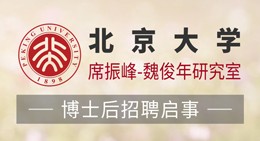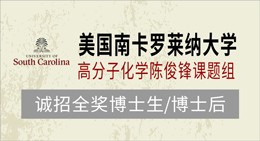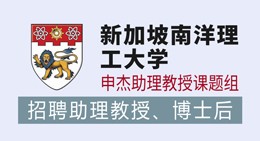Our official English website, www.x-mol.net, welcomes your feedback! (Note: you will need to create a separate account there.)
Four years of climate warming reduced dark carbon fixation in coastal wetlands
The ISME Journal ( IF 10.8 ) Pub Date : 2024-07-25 , DOI: 10.1093/ismejo/wrae138 Bolin Liu 1, 2 , Lin Qi 1 , Yanling Zheng 1, 3, 4 , Chao Zhang 1 , Jie Zhou 2 , Zhirui An 2 , Bin Wang 2 , Zhuke Lin 1 , Cheng Yao 1 , Yixuan Wang 1 , Guoyu Yin 1 , Hongpo Dong 2 , Xiaofei Li 2 , Xia Liang 2 , Ping Han 1 , Min Liu 1 , Guosen Zhang 2 , Ying Cui 2 , Lijun Hou 2
The ISME Journal ( IF 10.8 ) Pub Date : 2024-07-25 , DOI: 10.1093/ismejo/wrae138 Bolin Liu 1, 2 , Lin Qi 1 , Yanling Zheng 1, 3, 4 , Chao Zhang 1 , Jie Zhou 2 , Zhirui An 2 , Bin Wang 2 , Zhuke Lin 1 , Cheng Yao 1 , Yixuan Wang 1 , Guoyu Yin 1 , Hongpo Dong 2 , Xiaofei Li 2 , Xia Liang 2 , Ping Han 1 , Min Liu 1 , Guosen Zhang 2 , Ying Cui 2 , Lijun Hou 2
Affiliation
Dark carbon fixation (DCF), conducted mainly by chemoautotrophs, contributes greatly to primary production and the global carbon budget. Understanding the response of DCF process to climate warming in coastal wetlands is of great significance for model optimization and climate change prediction. Here, based on a four-year field warming experiment (average annual temperature increase of 1.5°C), DCF rates were observed to be significantly inhibited by warming in coastal wetlands (average annual DCF decline of 21.6%, and estimated annual loss of 0.08–1.5 Tg C yr−1 in global coastal marshes), thus causing a positive climate feedback. Under climate warming, chemoautotrophic microbial abundance and biodiversity, which were jointly affected by environmental changes such as soil organic carbon and water content, were recognized as significant drivers directly affecting DCF rates. Metagenomic analysis further revealed that climate warming may alter the pattern of DCF carbon sequestration pathways in coastal wetlands, increasing the relative importance of the 3HP/4HB cycle, whereas the relative importance of the dominant chemoautotrophic carbon fixation pathways (CBB cycle and W-L pathway) may decrease due to warming stress. Collectively, our work uncovers the feedback mechanism of microbially mediated DCF to climate warming in coastal wetlands, and emphasizes a decrease in carbon sequestration through DCF activities in this globally important ecosystem under a warming climate.
中文翻译:

四年的气候变暖减少了沿海湿地的暗碳固定
主要由化能自养生物进行的暗碳固定(DCF)对初级生产和全球碳预算做出了巨大贡献。了解沿海湿地DCF过程对气候变暖的响应对于模型优化和气候变化预测具有重要意义。这里,基于四年的现场变暖实验(年平均气温上升1.5°C),观察到沿海湿地的DCF率受到变暖的显着抑制(年平均DCF下降21.6%,估计年损失0.08) –1.5 Tg C yr−1 (全球沿海沼泽地)),从而产生积极的气候反馈。在气候变暖的情况下,化能自养微生物丰度和生物多样性受到土壤有机碳和水分含量等环境变化的共同影响,被认为是直接影响DCF率的重要驱动因素。宏基因组分析进一步表明,气候变暖可能会改变沿海湿地DCF固碳途径的模式,增加3HP/4HB循环的相对重要性,而占主导地位的化能自养固碳途径(CBB循环和W-L途径)的相对重要性可能会增加。由于变暖压力而减少。总的来说,我们的工作揭示了微生物介导的 DCF 对沿海湿地气候变暖的反馈机制,并强调在气候变暖的情况下,通过 DCF 活动在这个全球重要的生态系统中减少碳封存。
更新日期:2024-07-25
中文翻译:

四年的气候变暖减少了沿海湿地的暗碳固定
主要由化能自养生物进行的暗碳固定(DCF)对初级生产和全球碳预算做出了巨大贡献。了解沿海湿地DCF过程对气候变暖的响应对于模型优化和气候变化预测具有重要意义。这里,基于四年的现场变暖实验(年平均气温上升1.5°C),观察到沿海湿地的DCF率受到变暖的显着抑制(年平均DCF下降21.6%,估计年损失0.08) –1.5 Tg C yr−1 (全球沿海沼泽地)),从而产生积极的气候反馈。在气候变暖的情况下,化能自养微生物丰度和生物多样性受到土壤有机碳和水分含量等环境变化的共同影响,被认为是直接影响DCF率的重要驱动因素。宏基因组分析进一步表明,气候变暖可能会改变沿海湿地DCF固碳途径的模式,增加3HP/4HB循环的相对重要性,而占主导地位的化能自养固碳途径(CBB循环和W-L途径)的相对重要性可能会增加。由于变暖压力而减少。总的来说,我们的工作揭示了微生物介导的 DCF 对沿海湿地气候变暖的反馈机制,并强调在气候变暖的情况下,通过 DCF 活动在这个全球重要的生态系统中减少碳封存。












































 京公网安备 11010802027423号
京公网安备 11010802027423号